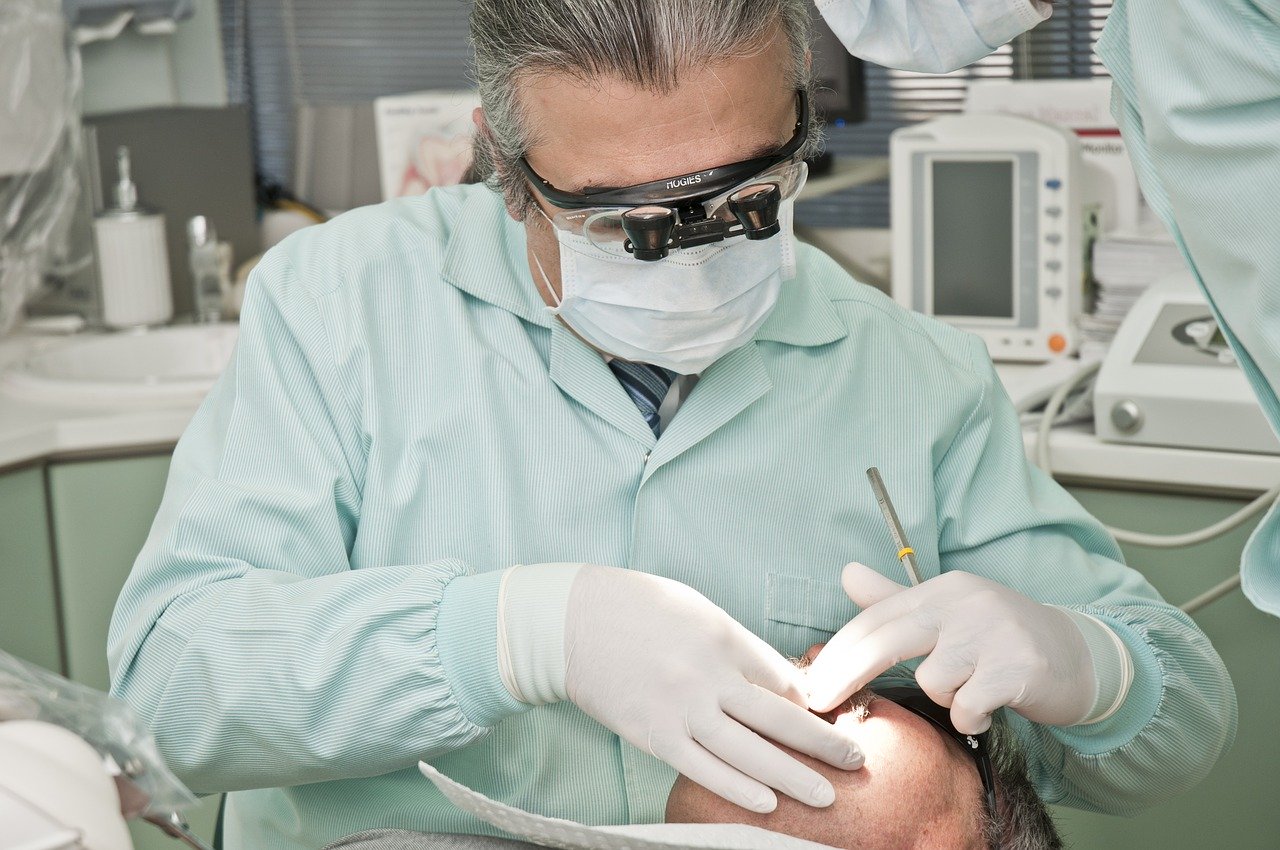To mark this Mouth Cancer Action Month, we interviewed Dr Philip Lewis of the Mouth Cancer Foundation about how to spot the early signs of the condition and why smokers are at higher risk of developing it.
To what extent does smoking increase a person’s risk of developing mouth cancer?
Worldwide smoking is the single most important public health problem and Tobacco use is still considered the main cause of mouth cancer. According to the World Health Organisation, up to half of current smokers will die of a tobacco-related illness – including mouth cancer.
The detrimental effects of smoking and tobacco use on oral health are well recognised. Oral cancers and pre-cancers, periodontal diseases and poor wound healing are the most significant and serious effects of smoking on the mouth. In addition, staining of the teeth, soft tissue changes and halitosis are aesthetic and social impacts of smoking directly related to oral health.
More than 2,700 cases of oral cancer were reported last year with smoking being a major aetiological factor. Besides oral cancer smoking and chewing tobacco are related to a number of other oral health problems, including periodontal disease, delayed healing, bad breath and loss of the sense of taste.
Millions of otherwise apparently healthy smokers visit a dentist every year for a check-up or dental treatment. Members of the dental team can therefore play a major role in helping people give up smoking by providing information and support in their practices or referring smokers wanting to quit to their local service.
Why does smoking increase the risk of developing mouth cancer?
Tobacco smoke contains hundreds of different chemicals. Many of these are poisonous. The poisons in tobacco smoke can damage a cell’s DNA, causing it to go out of control, leading to rapid cell division and causing a tumour to grow. Smoke also damages the body’s immune system making it harder for our natural defence systems to contain the cancer.
“When we smoke and drink alcohol together the risk of mouth cancer increases 30-fold. This is partly because alcohol weakens the structure of the skin allowing more cancer-causing chemicals in the smoke to get through”.
Do you think there is sufficient awareness among smokers of the link between smoking and mouth cancer?
Only about 50% of the population visit a dentist regularly so people who drink and smoke may be less likely to get the checks and examinations carried out by dentists that could help them. There is lots of publicity about the dangers of smoking, but it largely depends on whether people chose to take notice of it.

Overall, only about 20% of the population in the UK are aware of the risk factors of mouth cancer, including the link with the use of tobacco. In addition, many people think the risks of tobacco are only associated with cigarette smoking and do not realise other forms of tobacco usage like shisha pipe, paan chewing and smokeless preparations are equally and sometimes more dangerous.
What are the main symptoms of mouth cancer?
Signs and Symptoms of Mouth Cancer
• Ulcers that do not heal within 3 weeks
• Pain or discomfort in the mouth
• Lumps and swellings of no obvious cause in the mouth or neck
• Bleeding from the mouth in patients with no obvious gum disease
• Bleeding from the throat
• Red or white patches inside the mouth
• Changes in texture; hardness, roughness inside the mouth and the lips
• Teeth that become loose in the apparent absence of gum disease
• Difficulty or pain with swallowing, chewing or moving the jaw
• Persistent hoarseness or changes to the voice
• Persistent coughing or the feeling that something is ‘stuck’ in the throat
• Numbness or tingling of the lips or tongue
• Unexplained weight loss
• Dentures that suddenly stop fitting properly
How is mouth cancer treated?
The treatment for mouth cancer will depend on the type and size of the cancer, how far the cancer has spread, (the grade) and general health.
If the cancer has not spread beyond the mouth or the part of the throat at the back of the mouth (oropharynx) a complete cure may be possible using radiotherapy or surgery alone.
As well as being treated by a surgeon and a doctor who specialises in cancer (clinical oncologists), patients may also see a dietitian, speech therapist, and a dentist.
If the cancer is large or has spread to the neck, a combination of surgery, radiotherapy and chemotherapy may be needed.
The aim of surgery for mouth cancer is to remove any affected tissue while minimising damage to the rest of the mouth. If the cancer is advanced, it may be necessary to remove part of your mouth lining and, in some cases, facial skin. This can be replaced using skin taken from elsewhere on the body, such as the forearm or chest (a skin graft).
If your tongue is affected, part of it will have to be removed, called a partial glossectomy
The tongue may be left to heal on its own – this usually takes 3 to 4 weeks – or it may need to be reconstructed using grafted tissue.
If the cancer has invaded deep into your jawbone, the affected part of the jaw will need to be removed. Surgeons now use a complex technology called 3D printing to plan the reconstruction so that the replacement bone matches the removed bone almost exactly.
The grafted bone is kept alive by carefully joining tiny arteries and veins under a microscope (microvascular surgery). This increases the length of the operation. The bone and muscle used for this replacement is usually taken from the lower leg, hip or shoulder blade. Dental implants can often be put into the new bone so that dental bridges can be made to replace lost teeth.
Occasionally, other bones, such as cheekbones, may have to be removed to get rid of the cancer completely.
These can be replaced with bone from other parts of your body, or a specialist dentist can make an extensive denture called an obturator, which holds the cheek out from the inside to give a relatively normal appearance.
During surgery, the surgeon may also remove lymph nodes near the site of the initial tumour. This is often done as a preventative measure in case they contain a small number of cancerous cells that cannot be detected on any scans.
What is the prognosis for people diagnosed with mouth cancer?
If mouth cancer is found early, radiotherapy or surgery may be used on its own, with a high chance of curing the cancer so it does not come back. Like the treatment, the prognosis for mouth cancer will also depend on the type and size of the cancer, how far the cancer has spread, (the grade) and general health. To put some figures to this, a small cancer which has not spread to other areas of the body carries a five-year survival rate of about 94%. A tumour discovered later, especially one which has spread to the lymph glands and other organs carries a much lower survival. In the UK overall the five-year survival rate after treatment is about 50%

How can mouth cancer affect a person’s quality of life?
Mouth cancer may affect structures in the body that are important for breathing, eating, swallowing and speaking. It may also affect appearance. Survivors of mouth cancer often feel isolated. They may be embarrassed to eat in public. They may be less able to communicate. They may be conscious of their changed appearance. Social interaction is often reduced and a reluctance to take part in activities most of us take for granted affects their family and friends as well. In addition, there may be financial implications. Some sufferers may feel unable to return to work. They may need to pay for expensive dental restorative treatments. They may become depressed and apprehensive about what the future holds and their personalities may change, putting even more stress on their loved ones.
The Mouth Cancer Foundation aims to raise awareness of the signs and symptoms of mouth cancer so people know what to look out for and what to do if they notice something suspicious. The Foundation supports sufferers, survivors and their families and friends through its on-line forums. Early detection is the key as treatment will be quicker and less invasive resulting life expectancy being longer than it would if mouth cancer is detected late.
If people give up smoking, can they reduce their risk of developing mouth cancer?
People who stop using tobacco, even after many years of use, can greatly reduce their risk of all smoking related illnesses, including mouth cancer. The charity would always encourage everyone to give up smoking for the positive health benefits this can bring.









